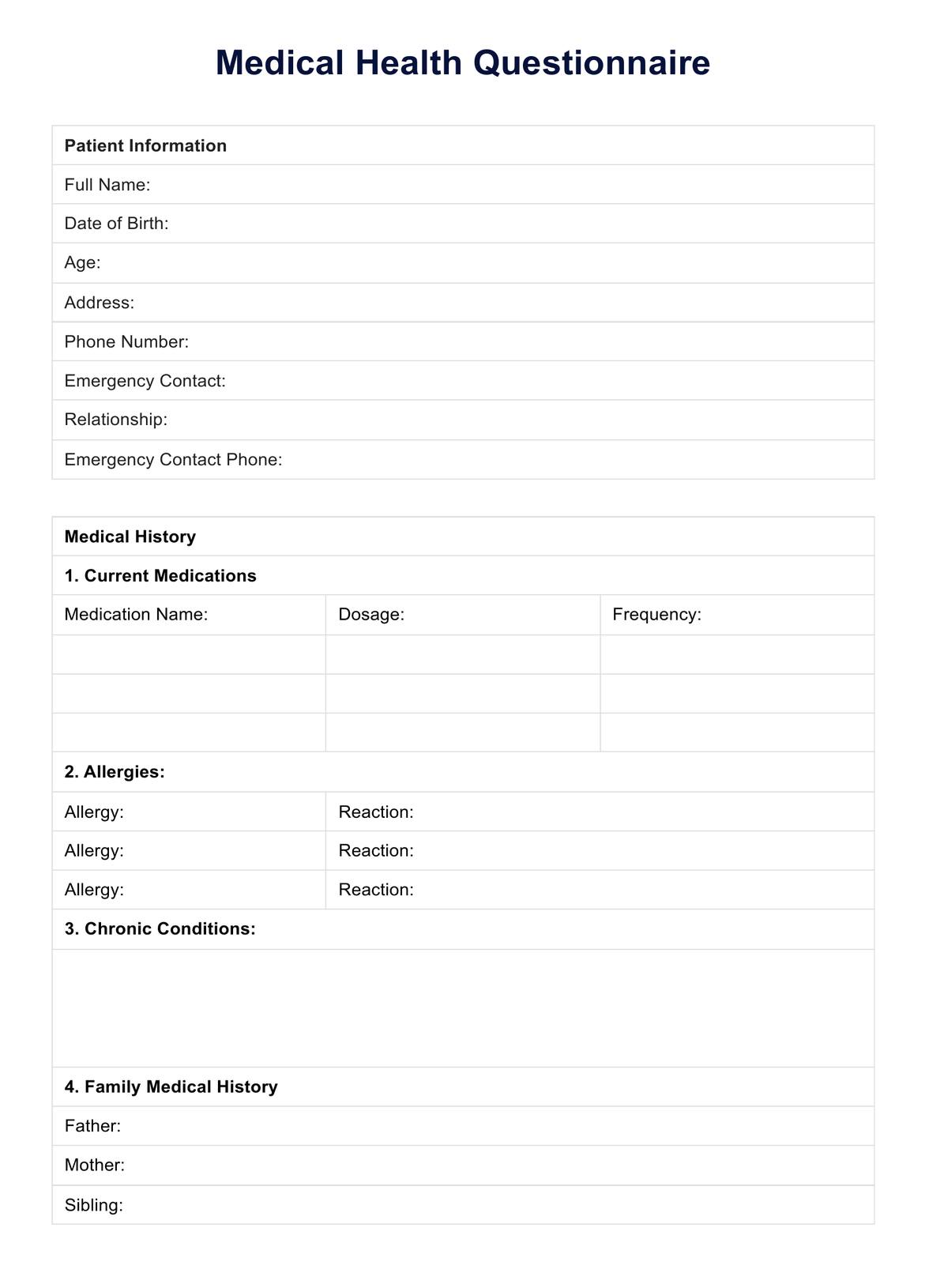The specific questions on a health questionnaire vary but generally cover medical history, lifestyle, and current health status.

Medical Health Questionnaire
Streamline health assessments with our Medical Health Questionnaire to ensure accurate and efficient patient information gathering.
Use Template
Medical Health Questionnaire Template
Commonly asked questions
A medical questionnaire is a document that gathers information about an individual's medical history, conditions, and lifestyle for healthcare assessment.
Health assessment questions typically inquire about an individual's overall health, symptoms, lifestyle choices, and any relevant medical history.
EHR and practice management software
Get started for free
*No credit card required
Free
$0/usd
Unlimited clients
Telehealth
1GB of storage
Client portal text
Automated billing and online payments











